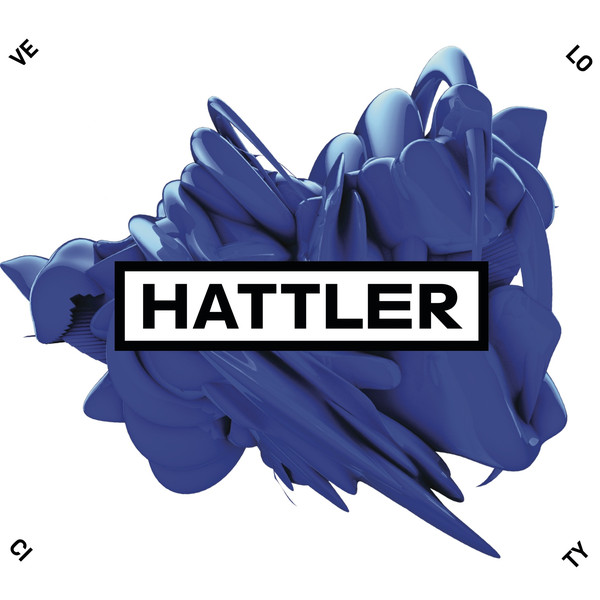
Exposé Online
What's old
Exposé print issues (1993-2011)
- 1 (October 1993)
- 2 (February 1994)
- 3 (May 1994)
- 4 (August 1994)
- 5 (October 1994)
- 6 (March 1995)
- 7 (July 1995)
- 8 (November 1995)
- 9 (March 1996)
- 10 (August 1996)
- 11 (February 1997)
- 12 (May 1997)
- 13 (October 1997)
- 14 (February 1998)
- 15 (July 1998)
- 16 (January 1999)
- 17 (April 1999)
- 18 (November 1999)
- 19 (May 2000)
- 20 (October 2000)
- 21 (March 2001)
- 22 (July 2001)
- 23 (December 2001)
- 24 (April 2002)
- 25 (September 2002)
- 26 (February 2003)
- 27 (August 2003)
- 28 (December 2003)
- 29 (April 2004)
- 30 (September 2004)
- 31 (March 2005)
- 32 (September 2005)
- 33 (May 2006)
- 34 (March 2007)
- 35 (January 2008)
- 36 (October 2008)
- 37 (July 2009)
- 38 (July 2010)
- 39 (Summer 2011)
Reviews
Hattler — Velocity
(Bassball CD 36080, 2018, CD)
by Peter Thelen, Published 2018-11-14

Though most will know Hellmut Hattler as a founding member and bassist of Kraan, many are not aware of his works outside of that band, which probably began in 1977 with his solo album Bassball and several collaborations following that with Joo Kraus, Torsten De Winkel and others. The band Hattler (as opposed to his solo albums) began around 2000 woth No Eats Yes and has been a going concern ever since, Velocity being the latest of about 14 releases, including three live albums. As opposed to Kraan, which has an expected primarily instrumental free-wheeling funky jazz-rock sound, the band that bears Hattler’s name can go anywhere, in any direction, and do it competently and comfortably. On this one, HH writes or co-writes most of the material, and still plays a mean bass. Also on board are Joo Kraus (trumpet), Martin Kasper (keyboards, Mellotron, piano, electronics), Juergen Schlachter (drums, percussion), Ali Neander (guitar), and singer Fola Dada on many of the vocal cuts, plus plenty of other folks as needed on various tracks. “Anthem for Approaching Starships” opens the album (and a shorter reprise of it closes the disc), an instrumental with a grand powerful melody that is simply unforgettable, featuring a full horn section, xylophone, Mellotron and much more. Fola Dada is introduced on the second track “Teaser,” which features a more funky bottom end and radio friendly approach as opposed to the more symphonic opener. She’s featured on four of the 11 cuts, but perhaps the most memorable of all is “Mayday in Paradise,” where she turns in a truly beautiful and sensitive vocal performance over a combination of drums and electronic beats with Kraus’ trumpet lighting the pathway, one of those songs that just grabs you and doesn’t let go. The title track features a stripped down lineup of Kraus, Hattler on bass and effected vocals, and electronics (beats and sounds) by Peter Musebrink for a laid-back almost trancey yet stunningly melodic romp. Hattler and Musebrink feature again on “Delhi Mail,” along with Torsten De Winkel playing electric sitar, a lot of percussives and other synth sounds underpinning a very forward moving groove where bass an sitar paint an unforgettable melody. All taken, there are notable surprises throughout the album at every turn.
Filed under: New releases, 2018 releases
Related artist(s): Hellmut Hattler
What's new
These are the most recent changes made to artists, releases, and articles.
- Review: Sterbus - Black and Gold
Published 2026-03-03 - Release: Janel Leppin's Ensemble Volcanic Ash - Pluto in Aquarius
Updated 2026-03-02 15:06:51 - Release: Janel Leppin - Slowly Melting
Updated 2026-03-02 15:05:27 - Release: Alister Spence - Always Ever
Updated 2026-03-02 15:04:11 - Release: Let Spin - I Am Alien
Updated 2026-03-02 15:02:41 - Review: Falter Bramnk - Vinyland Odyssee
Published 2026-03-02 - Review: Exit - Dove Va la Tua Strada?
Published 2026-03-01 - Review: Steve Tibbetts - Close
Published 2026-02-28 - Release: We Stood Like Kings - Pinocchio
Updated 2026-02-27 19:24:02 - Release: Stephen Grew - Pianoply
Updated 2026-02-27 19:20:11 - Release: Thierry Zaboitzeff - Artefacts
Updated 2026-02-27 00:16:46 - Review: Kevin Kastning - Codex I & Codex II
Published 2026-02-27 - Release: Zan Zone - The Rock Is Still Rollin'
Updated 2026-02-26 23:26:09 - Release: The Leemoo Gang - A Family Business
Updated 2026-02-26 23:07:29 - Release: Ciolkowska - Bomba Nastoyashchego
Updated 2026-02-26 13:08:55 - Review: Immensity Crumb - Chamber Music for Sleeping Giants
Published 2026-02-26 - Release: The Gatekeepers - Diary of a Teenage Prophet
Updated 2026-02-25 15:55:58 - Review: Mars Lasar - Grand Canyon
Published 2026-02-25 - Listen and discover: Mordecai Smyth will not break your back
Published 2026-02-25
